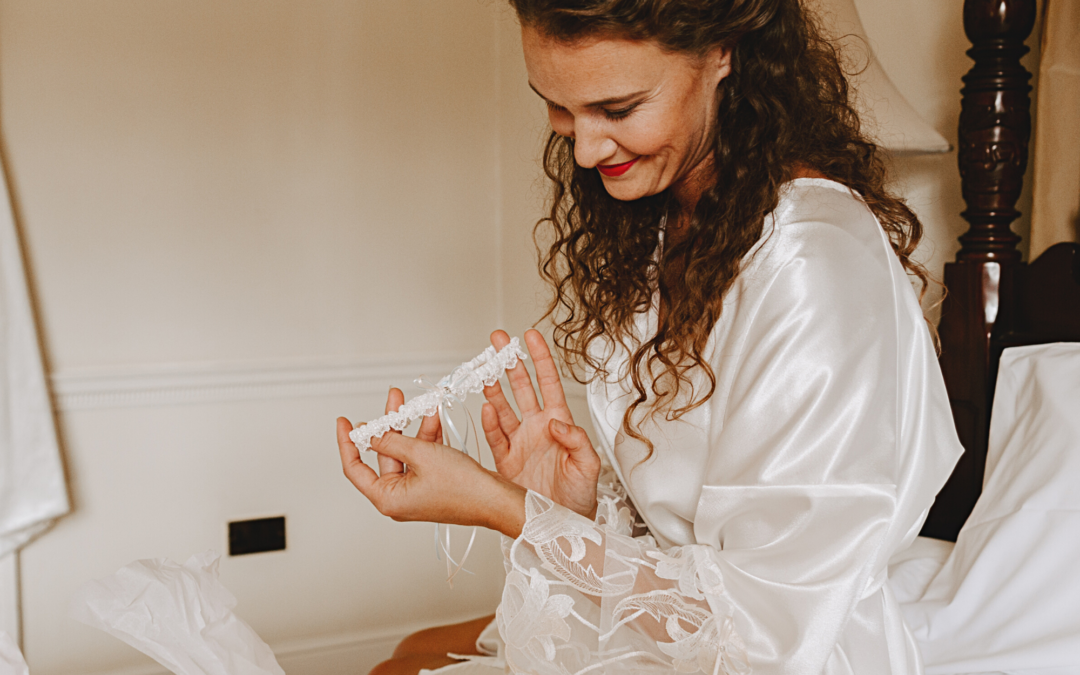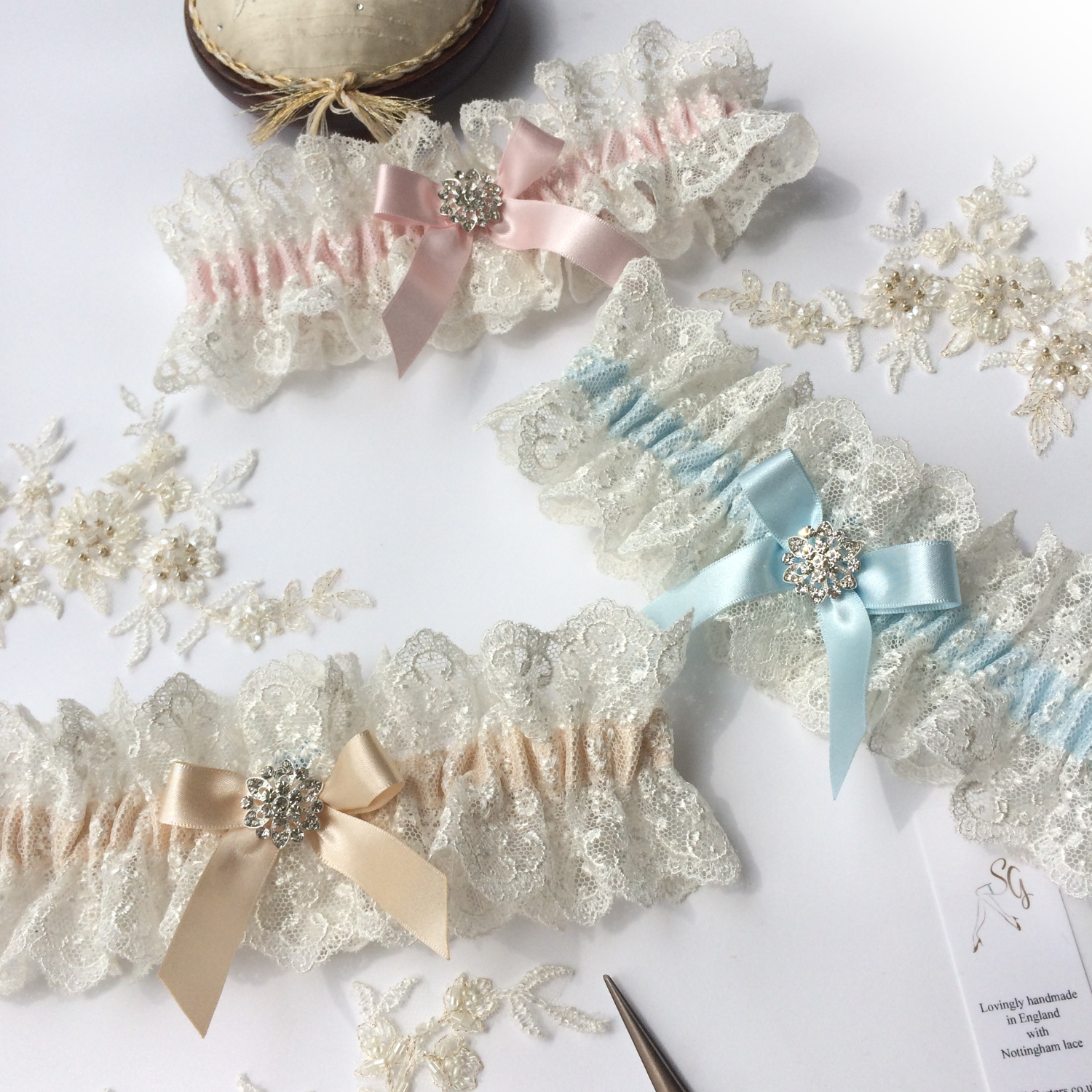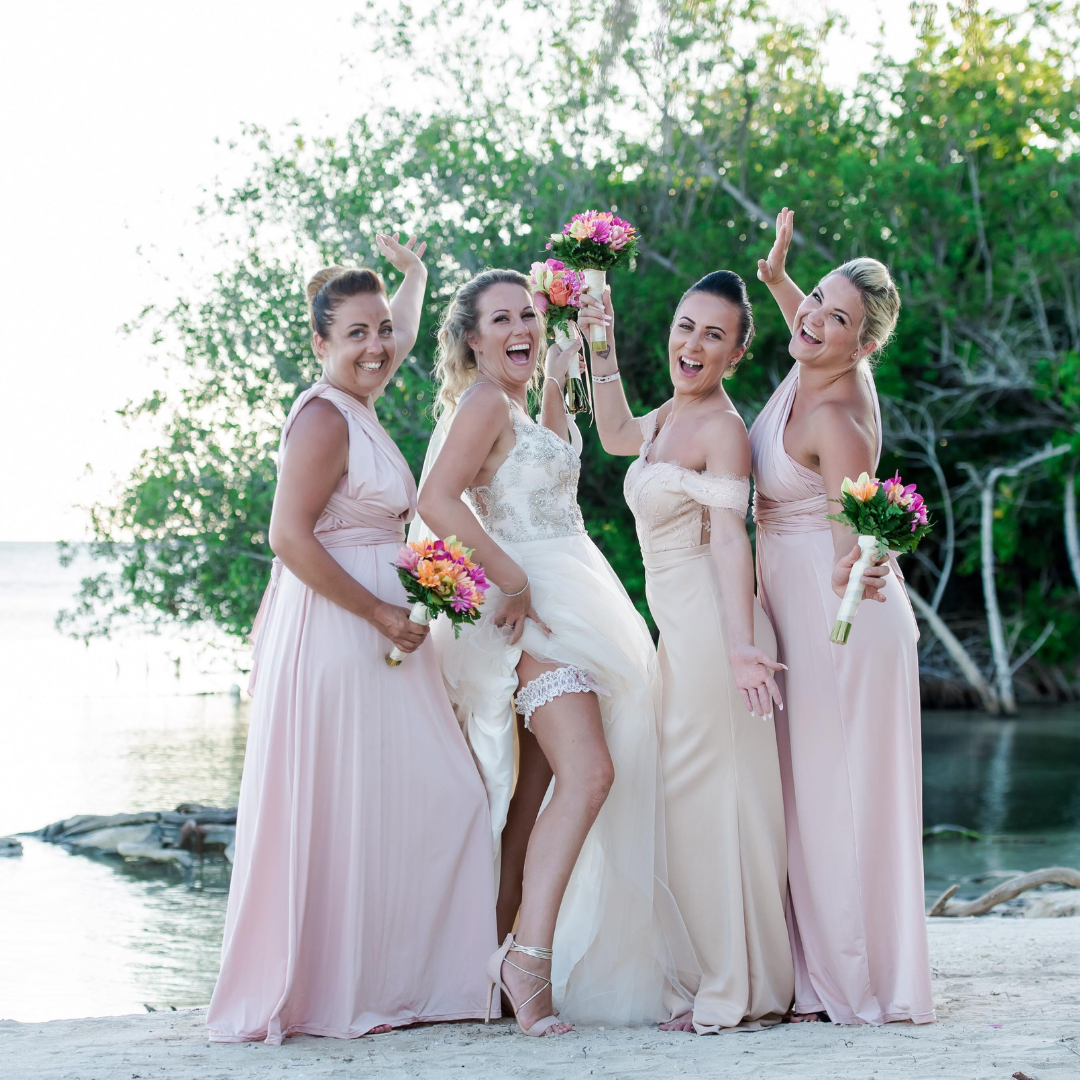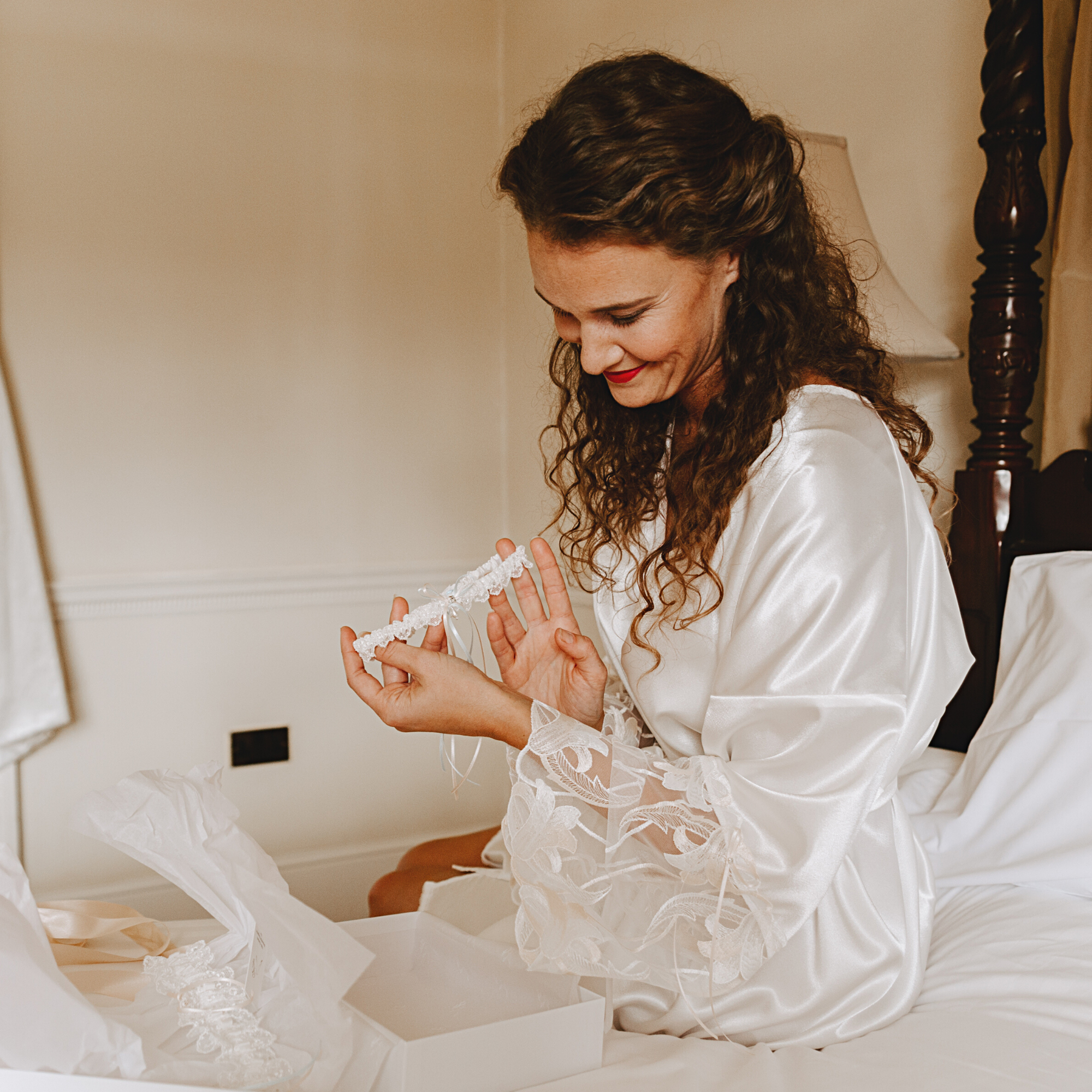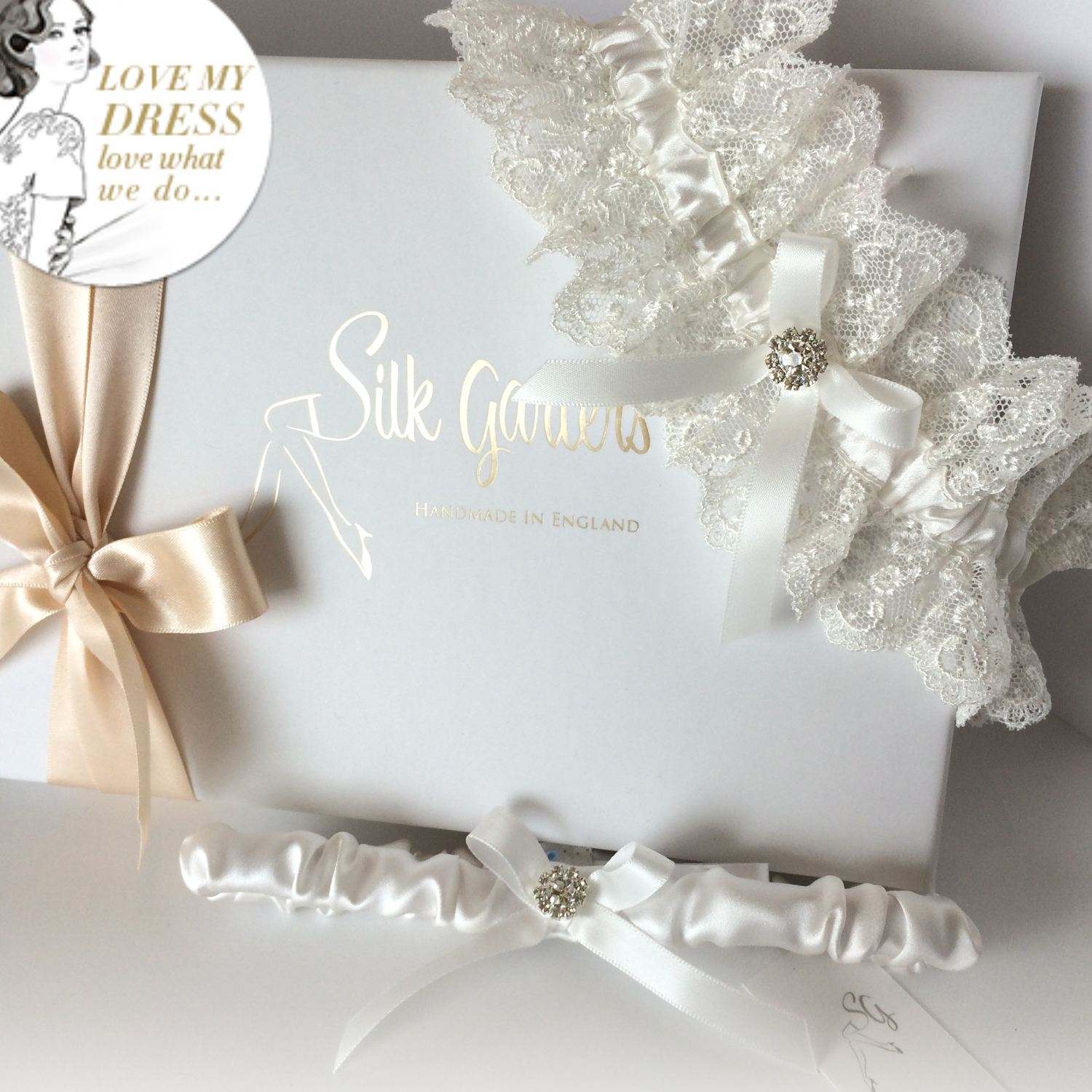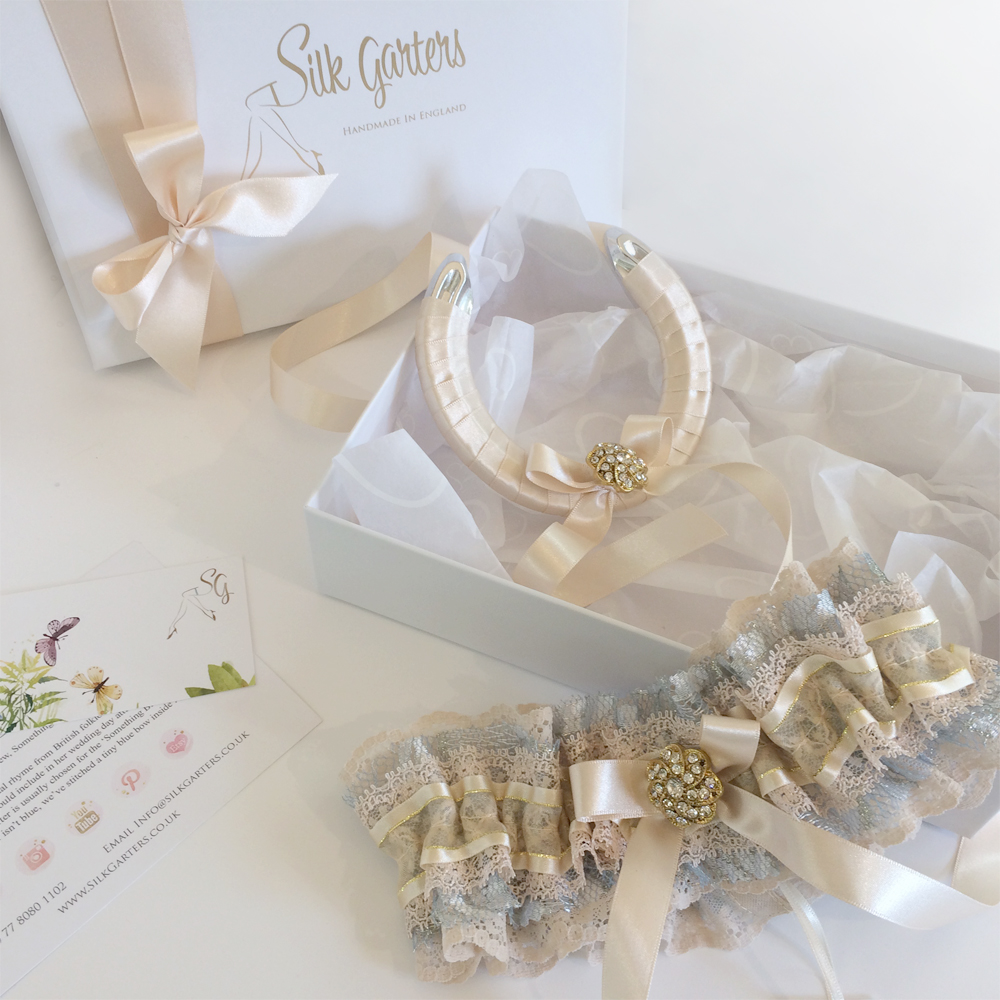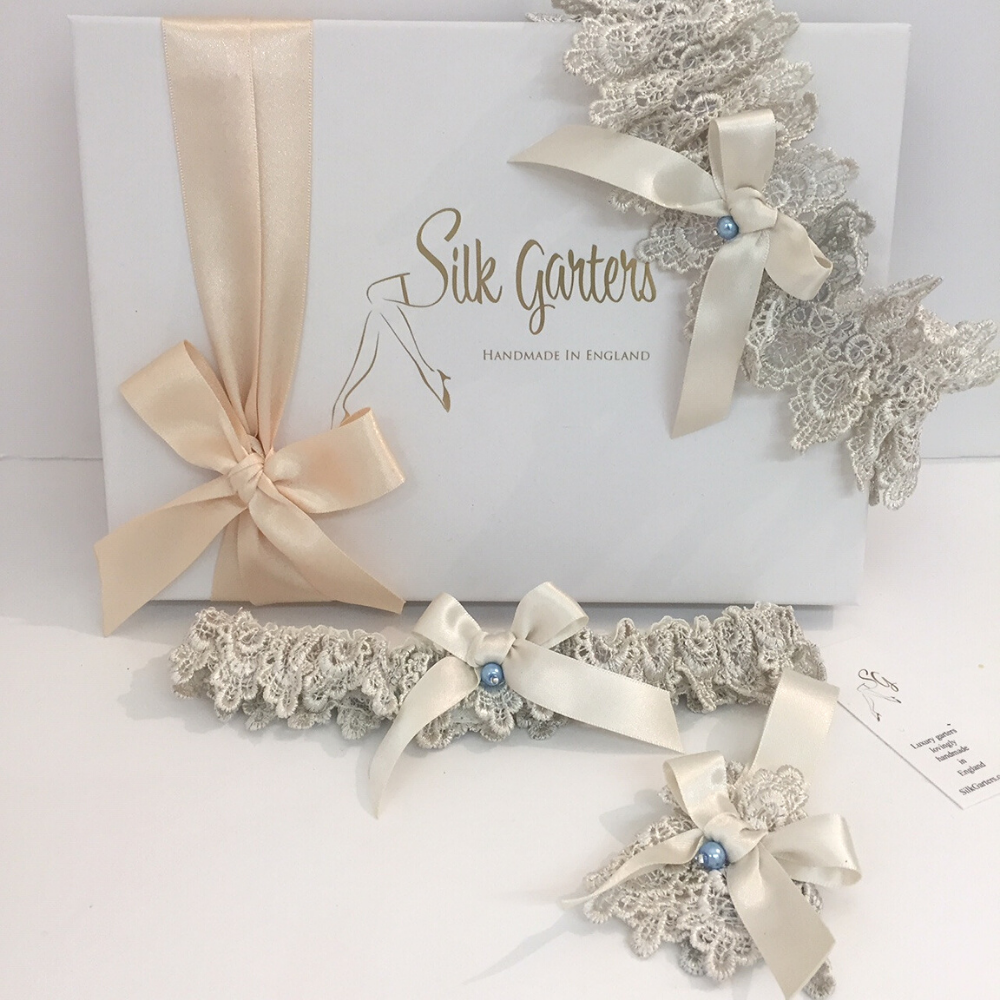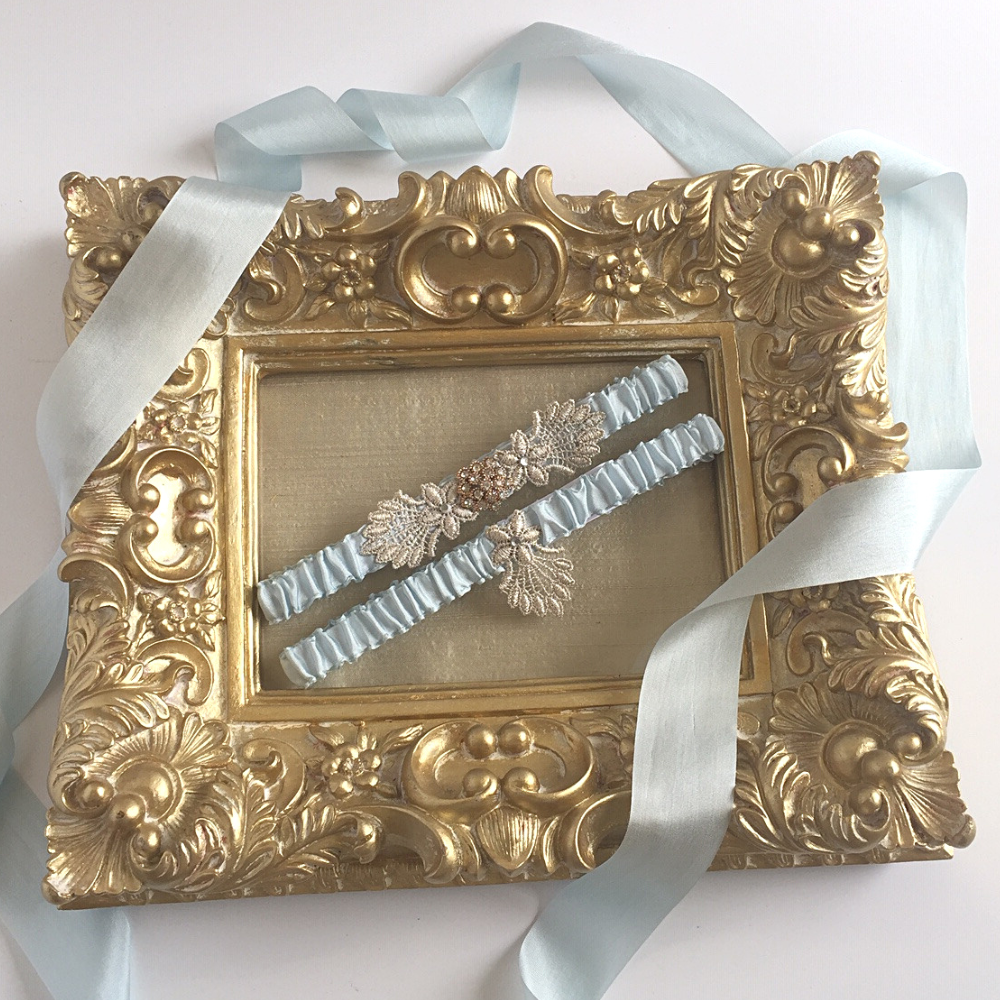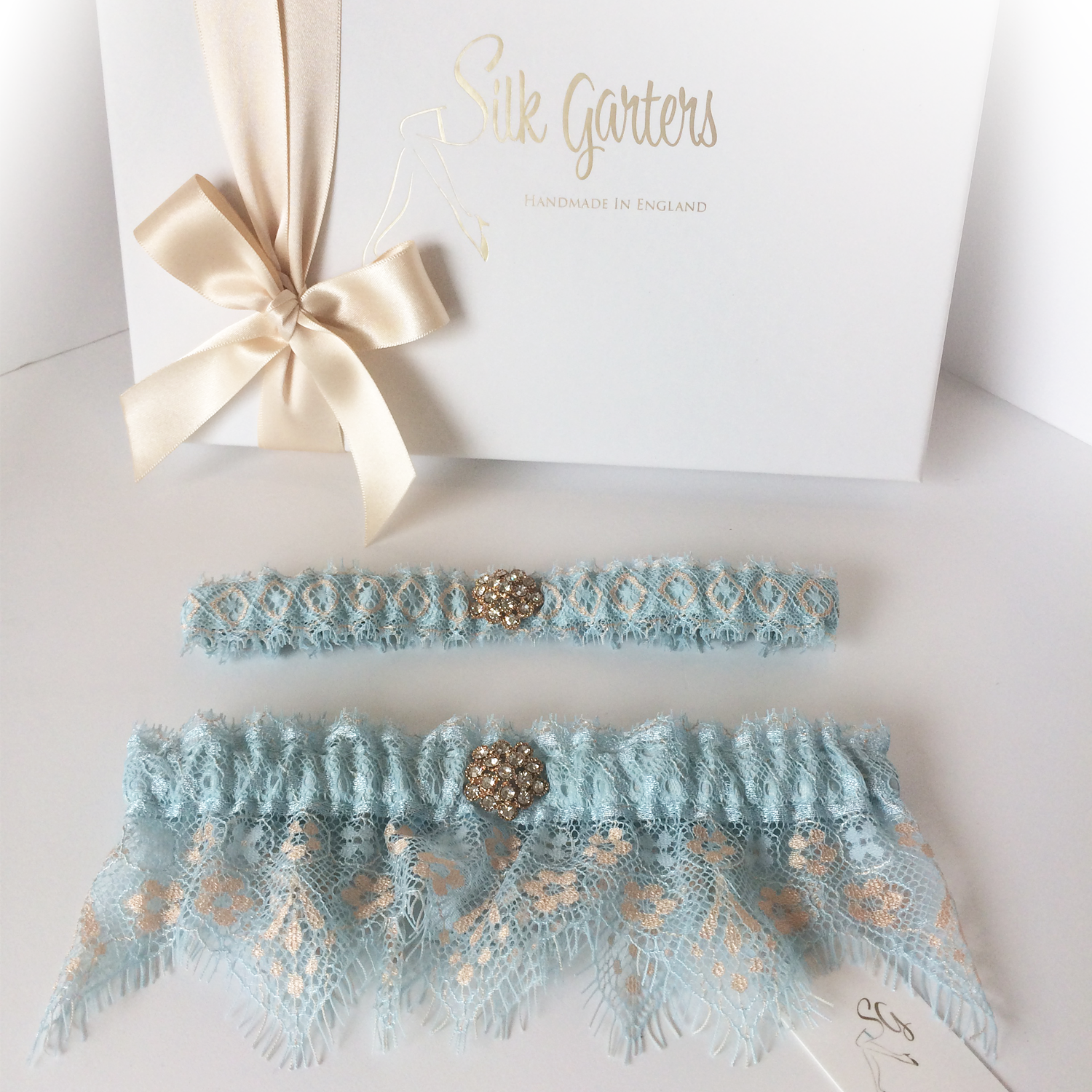The history of the wedding garter
Weddings include countless beloved traditions — from exchanging vows to cutting the cake — but perhaps the most intimate of them all is the wedding garter.
Brides around the world continue to wear it, often tucked beneath layers of silk and lace as a nod to this curious custom.
But have you ever stopped to wonder where the tradition actually began — and what it truly means?
The story of the wedding garter stretches back centuries, rooted in folklore, superstition, and evolving social customs. While today it often symbolizes luck, love, or a playful moment during the reception. Its origins tell a much richer and more surprising tale…
Just what is a garter?
Lauren wedding garters in a choice of colours
The garter has rather mundane origins, as it was created to hold up stockings in an age where underwear such as briefs, hadn’t even been thought of…
Stockings were pulled on and then the garter, originally just a ribbon of plain fabric, was placed at the top, tied around the thigh, and the stocking top rolled over it.
In an age when to see a woman’s ankle was considered erotic, to see a garter would have been truly shocking.
The Lauren garter
The garter was eventually replaced for everyday wear by more practical stockings, pantyhose / tights and hold-ups. However, whilst the garter may have disappeared from the drawers of twenty-first century women, it still gets a delightfully public airing at some wedding ceremonies.
Tanya wears the Lauren garter while having fun with her bridesmaids.
A symbol of good luck
A wedding garter toss is similar to the bridal bouquet tradition, except except the groom throws the garter to the male guests.
Several theories explain the origins of this tradition, one of which dates back to 14th-century England — a time when weddings were far rowdier than they are today. Guests sang songs that would make you blush and drank a crazy amount of alcohol.
Back then, raucous wedding guests often escorted the newlyweds to their bedroom, to officially witness the ‘bedding’ of the couple. As part of the ritual, the groom would remove a stocking — usually the left one — from his bride’s leg and toss it into the crowd. People called this custom ‘flinging the stocking.’
In those superstitious times, guests believed the act brought good luck — especially if the stocking happened to land on someone’s nose, oddly enough!
The Meg wedding garter set
The North of England seemed to have their own, more boisterous, take on stocking flinging. There, when the wedding ceremony was over, the male guests would rush at the bride and remove her garter themselves. Unsurprisingly, there are stories of horrified brides, over-enthusiastic wedding guests and people becoming injured. Perhaps for this reason, or maybe because better-behaved weddings became more the fashion. This custom was downgraded to just the removal of the garter by the bride herself.
The Ivory Silk Ruffle wedding garter set
The race for the garter
In the 19th century, it became the custom for young men to run from the church to the house of the bride after the wedding ceremony. The first to arrive was allowed to remove the bride’s garter. The lucky gent would then tie the garter around the leg of his own sweetheart, hoping that it would encourage her to be faithful to him. Other versions have the young man wearing the bride’s garter in his hat.
Yet another tradition has it that the bride’s garter would be decorated with colored ribbons or streamers. She would then cut off the ribbons and hand out to the guests. It’s this tradition, which is thought to be where the idea of wedding favors comes from.
The Decadent Lace Layers wedding garter set
The wedding garter today
Nowadays, we like to think that weddings have become a bit more civilized (unless we have really crazy friends and family), and the throwing of the wedding garter occurs after the bride has thrown her bridal bouquet to the unmarried women.
In the UK, the garter toss is gaining popularity again, but the bride usually removes the narrower toss garter herself. In the USA the groom may remove the garter from his wife’s leg and throw it to his unmarried male friends.
The Ayana wedding garter set
With the wedding garter history, superstition holds that whoever catches the bouquet and the garter will be the next people to marry. Sometimes within twelve months and not necessarily to one another, which may be a relief to both!
A variation on this is for the catcher of the garter to tie it around the upper leg of the woman who caught the bridal bouquet, and this couple are then expected to enjoy a dance together.
The Lula wedding garter set
Brides taking part in the garter toss tradition, will have two garters. One to throw and one to keep on for the wedding photographs, raising her dress just enough to show off her garter. This is the more elaborate, keepsake garter.
Wedding garter history and the ‘Something Blue’
A bride often chooses a garter, to fulfill the charming wedding tradition of ‘something old, something new, something borrowed, something blue.’ Many brides pick a blue garter to meet that final part of the rhyme. The whole garter doesn’t need to be blue, the bride above chose to have blue pearls. But blue is far from the only option. Brides also embrace neutrals, classic whites, bold reds, deep purples, and dramatic blacks — each adding their own personal touch to the tradition.
I love this vintage blue with the old gold! A lovely narrow wedding garter set in pure silk, could be your perfect ‘something blue’.
The Etta wedding garter set
Not all brides want to show their garter to a room full of guests. So, while tossing the garter is a well-known wedding tradition, many brides choose to skip it — like everything else in a wedding, it’s a personal choice. You may prefer to save your garter for your partners eyes only…
Who will see yours?
